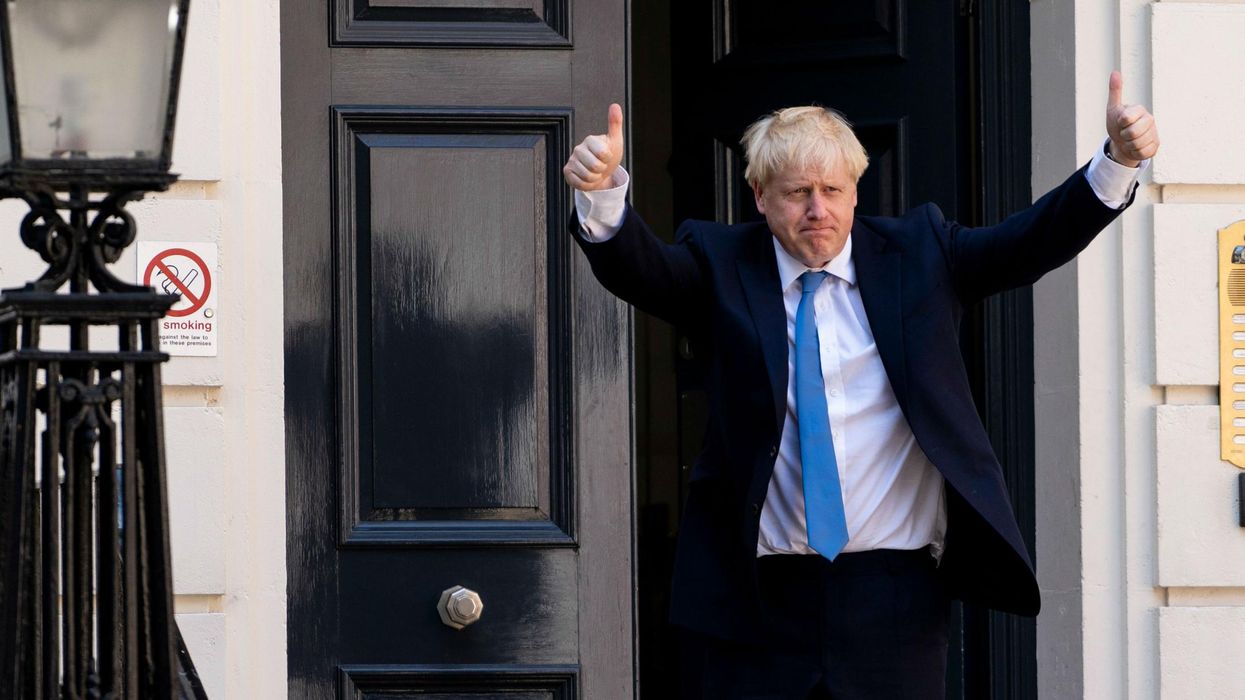Narjas Zatat
Aug 27, 2019

Picture:
Niklas Halle’n/AFP/Getty
Boris Johnson has repeatedly refused to rule out suspending parliament to push through a no-deal Brexit.
During the G7 summit in Biarritz Johnson made it clear that he was not ruling out the use of a procedure called prorogation to stop MPs coming together across party lines to block Brexit.
Asked about the role of Commons speaker John Bercow, Johnson said: “I hope that all parliamentarians will use their good offices to respect the will of the people and get Brexit done.”
Can Boris really suspend parliament for five weeks?
It’s a little complicated.
What is prorogation?
According to parliament.uk:
Prorogation marks the end of a parliamentary session.
It is the formal name given to the period between the end of a session of Parliament and the State Opening of Parliament that begins the next session.
The parliamentary session may also be prorogued before Parliament is dissolved.
These sessions tends to last one year, however the current session has been going since 2017 as it was extended to focus on Brexit.
According to BBC, “if a new prime minister is concerned about MPs blocking the UK's exit from the EU, they could advise the Queen to prorogue Parliament.”
This means MPs will be sent away and could not do anything in the Commons to hold up or extend Brexit.
Has this been done before?
Yes, but it “makes officials rather nervous,” Politico said.
Writing for The Daily Telegraph Theresa May’s former legislative adviser Nikki da Costa said: “It would not necessarily require a full queen’s speech. It could be made clear that this is for a very short duration with a longer session to follow.”
This is not to be done lightly, but there is historical precedent. In 1948 a new Parliament Bill to reduce the power of the Lords was being blocked by peers, but powers… which would allow the government to override the Lords could only be used if there had been a delay over three ‘sessions’. A special short session of 10 days was therefore arranged.
In the context of Brexit, suspending parliament is the ‘gravest abuse of power in living memory”
Shami Chakrabarti, the shadow attorney general, said any attempt to prorogue parliament to stop MPs blocking no-deal faced being overruled by the courts.
It is the “gravest abuse of power and attack on UK constitutional principle in living memory."
In a six-page document prepared for Jeremy Corbyn, Baroness Chakrabarti said it was "heartening" that a bid to stop the Commons sitting would likely be blocked.
Baroness Chakrabarti, a barrister, said prorogation would likely face a legal challenge and the courts “might well even grant interim injunctive relief in order to allow both houses of parliament to continue to sit and discharge their primary and sovereign constitutional role in this current moment of national crisis”.
She wrote:
Whilst it is alarming that lawyers for either Her Majesty’s government or opposition should have even to consider such a scenario in our cherished mature democracy, it is equally heartening that we may rely on our courts to protect it.
I have no hesitation in advising that any such attempted administrative action by the government would constitute the gravest abuse of power and attack upon UK constitutional principle in living memory.
More: People are sharing the ways that #ObamaOutDidTrump and it's tragically hilarious
More: Trump suggested firing nuclear weapons to stop hurricanes because that’s where we are at
Top 100
The Conversation (0)













